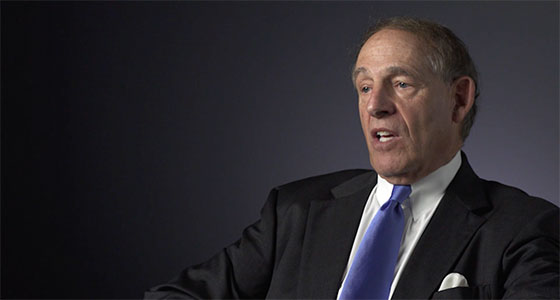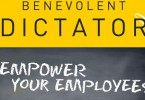Michael Feuer reached the pinnacle of entrepreneurship when he co-founded OfficeMax and grew it into an international retail powerhouse with $5 billion in sales and 1,000 stores worldwide. He’s also had ventures that didn’t go so well. Win or lose, he dutifully takes the time to understand what happened and why it did or didn’t work. “Too many people make deals for the sake of the game of it and being in the chase,” Feuer notes. “Then they realize quickly that the catch wasn’t worth the chase.”
A battle of egos
Well, I believe my personal approach to dealmaking has changed probably 360 degrees and continues to change as things evolve. When I was very young, I suffered from, ‘I’m going to be the winner, the other guy is going to be the loser.’ It works once in a while. But on an ongoing basis, it doesn’t. In making a deal, you have to really determine what is it that you want and know that going in. Then you have to determine what is going to make the other side feel like they won? Sometimes, it’s not just money. But there are a lot of other aspects to making a deal. I remember — full disclosure now, it’s old news — (OfficeMax) was in negotiations to merge with Staples, our arch enemy. We were down to the very end of the deal — it was never price.
But instead, it was who was going to be CEO and what’s the name on the building going to be? The irony, and God rest his soul, Tom Stemberg, who was my archenemy publicly, but I really liked the guy and we got along. We got down to the deal where Tom said, ‘Good, you’re a better operator and you work harder. I want to be the face guy.’ And I said, ‘No, Tom, I want to be the face guy. I want you do to the work.’ That was a real stumbling block.
The other thing — and this was ego on both sides — was the name. Was it going to be OfficeMax or was it going to be Staples. We couldn’t come to an agreement. The irony and the lesson there is Office Depot subsequently merged with OfficeMax and today the stores are known by their respective names and their advertising, it’s Office Depot, OfficeMax. So there is always a solution. Sometimes you have to be a good listener and be able to be flexible, as evidenced by a Staples/OfficeMax deal that never happened. And the reason was never money. It was because of the two items I just mentioned.
Take the chip off your shoulder
When you sit down at the table to negotiate something with a chip on your shoulder or I’m better and bigger than you are, you will not cut a good deal. I always like to say the dumbest farmers grow the biggest potatoes. That just means you sit there, you listen. You can very quickly figure out what is important to the other side. Then you try to sincerely make an accommodation so they can feel they won and you win. You have an obligation, if you’re a public company, for those constituents I mentioned including the shareholders, probably the most important. But you also have an obligation to the communities you serve, your employees and many others. But I think flexibility is the key and when you sit down with my way or the highway, you’ll be on the highway pretty often and never make a deal.
When you’re sitting down at the table, never lose track of the objective. And that is to get what you want, not necessarily to get the biggest headline or the best publicity. But instead, get what is best for what you’re trying to achieve and don’t get so hung up on ego. I think the best negotiating story, another one I have, I was in negotiations with Circuit City that owned CarMax. We sued them and they sued us over the name. A federal judge sent a message — it was in Virginia — ‘Both of you boys,’ as he called us, ‘will be in my chambers on X date.’ We both flew down there. We walk in the judge’s chambers and he says, ‘This is never going to court. Neither of you will be completely happy with the solution. I’m leaving now and you’re going to sit in the chambers and you both will come out of the room with an agreement and then you’re going to go home and get you off my docket.’
You know what, once you know the ground rules — he did add, ‘I’ll make your lives miserable until that happens. I liked it because he had the cards and we knew what the rules were and we made the deal.
Click HERE to read the original interview: Winner-take-all mindset can be a losing strategy.
Make sure the catch is worth the chase
Too many people make deals for the sake of the game of it and being in the chase. Then they realize quickly that the catch wasn’t worth the chase. You can spend your life spinning your wheels trying to make a deal unless you think about what is the end result. Every time I get into a deal, I sort of ponder this privately with myself. At the end of the day, if it really works, what do I have to show for it? It can be many other things including gratification, helping people, making money is not so bad either. But unless I can answer those questions, I wouldn’t get involved.
Michael Feuer co-founded OfficeMax and in 16-years, as CEO, grew the retailer to sales of $5 billion in 1,000 stores worldwide. Today, as Founder/CEO of Max-Ventures, his firm invests in and consults for retail businesses. Serving on a number of boards, Feuer is a frequent national speaker, and author of the business books, “The Benevolent Dictator” and his newest book “Tips from the Top.” His long running nationally syndicated Smart Business magazine column has received more than 10 awards for excellence. Contact [email protected].






